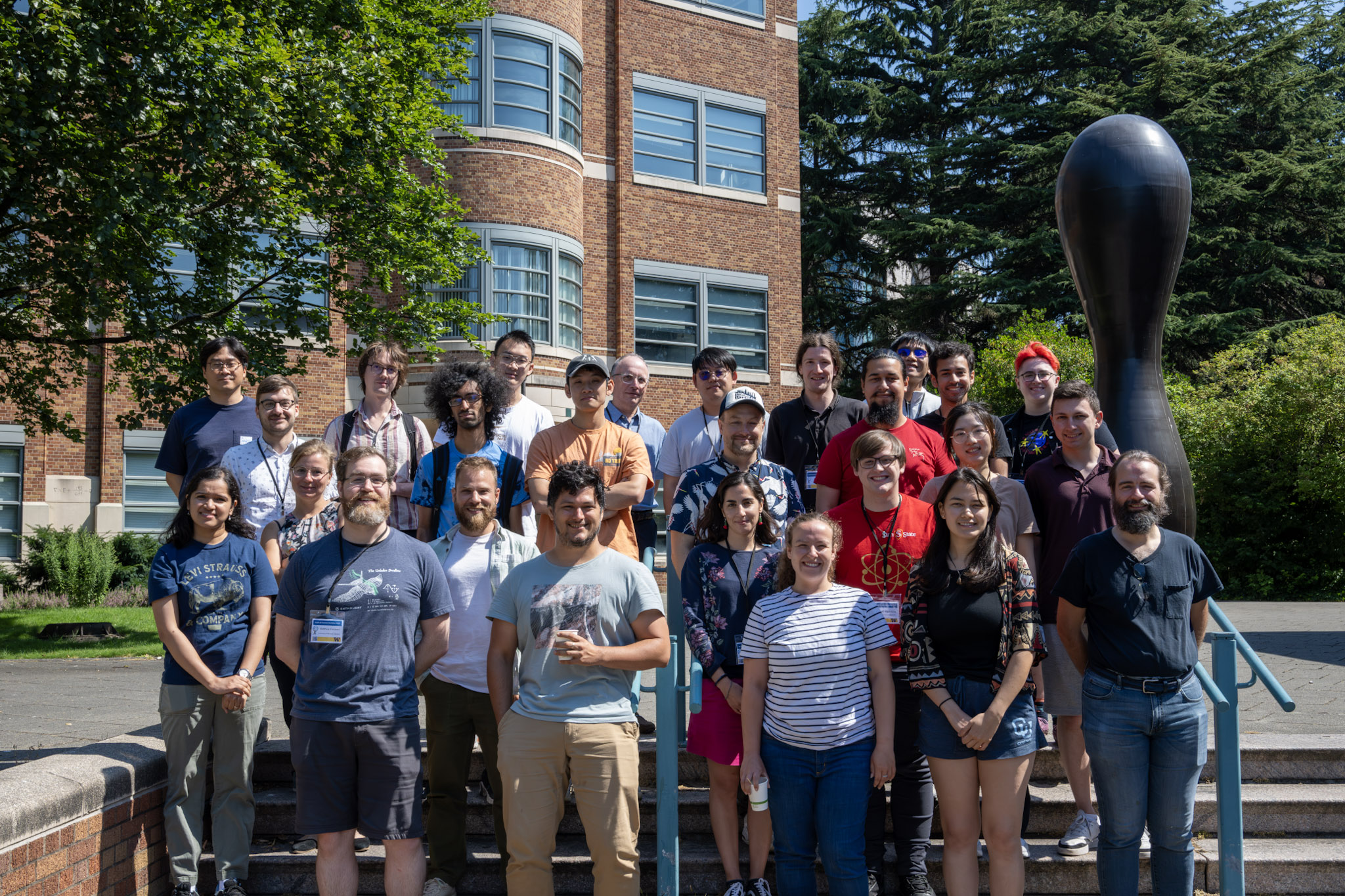US ATLAS / IRIS-HEP Analysis Software Training Event 2024
PAC 211 (C211)
Physics and Astronomy (PAA)
The joint IRIS-HEP computational and data science software training event will take place from Thursday 18 July through Friday 19 July, 2024 at the University of Washington. The training event will be co-located with the US ATLAS Meeting in Seattle, WA.
Training event materials GitHub repository
Advanced software is a critical ingredient to scientific research. Training young researchers in the latest tools and techniques is an essential part of developing the skills required for a successful career both in research and in industry.
Specific topics to be covered at the school include:
-
Columnar analysis and uproot
- Distributed analysis and Dask
- Data Visualization techniques and libraries
- Using the UChicago Analysis Facility
- Statistical tools
The school offers a limited number of young researchers an opportunity to learn these skills from experienced scientists and instructors. Successful applicants will receive travel and lodging support to attend the school. Thank you to everyone who applied!
Instructor Team
- Matthew Feickert, University of Wisconsin-Madison
- Oksana Shadura, University of Nebraska - Lincoln
- Jim Pivarski, Princeton University
- Vangelis Kourlitis, Technical University of Munich
- Gordon Watts, University of Washington
- Lindsey Gray, Fermilab
- Ana Peixoto, University of Washington
- Alexander Held, University of Wisconsin-Madison
- KyungEon Choi, University of Texas at Austin
Group photo (click for full version):
 |
This event is sponsored by the National Science Foundation through Cooperative Agreements OAC-1836650 and PHY-2323298 (Institute for Research and Innovation in Software - IRIS-HEP). Any opinions, findings, conclusions or recommendations expressed in this material are those of the developers and do not necessarily reflect the views of the National Science Foundation. |
